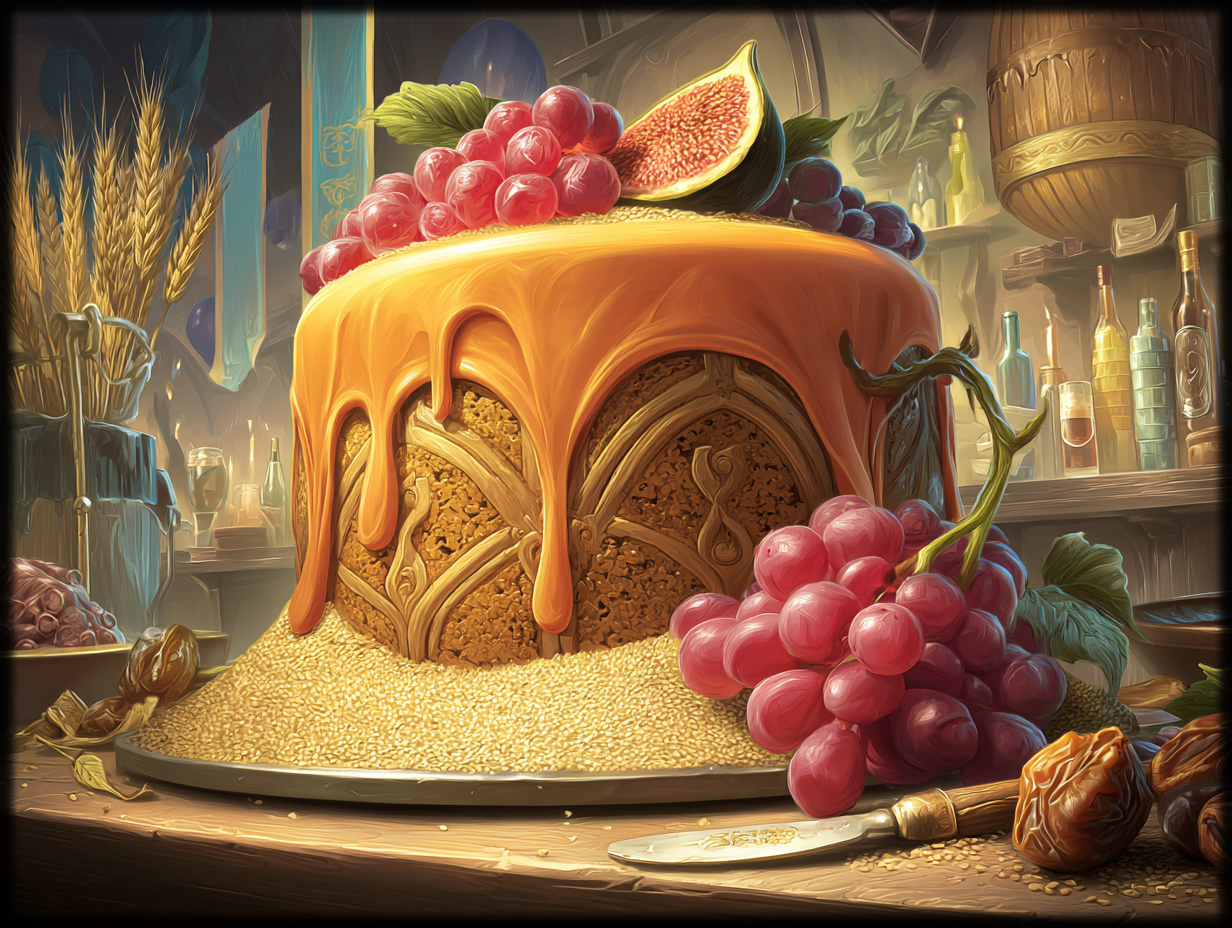Sweet Honey Cake
There once was a boy who lived in a far away city. The boy was very poor and had no one to look after him, except for a retired, old dentist. The dentist lived in a cramped upper room near a bakery, where the air was always thick with the scent of sweet dough and cinnamon and cloves. As winter crept in and the city’s canals froze solid, the boy took to spending his days there, sweeping up the flour dust, cleaning the pans and stocking the firewood. The baker paid him in silver, but to the boy the real reward was watching her bake and cleaning out the dough bowl.
At first, the old dentist lectured him on incisors, on cuspids and bicuspids, on proper mouth hygiene, on the importance of eating healthy vegetables and fruit instead of honeyed buns and iced cookies all day, and on the pitiful state of cheeky, little boys who dreamed of becoming a baker when he could become a dentist instead and help people. The boy, however, only watched and nodded and forgot every stern instruction the moment the scent of baking drifted up from below.
Despite his gruff exterior, the dentist had a soft spot for the boy and cherished seeing him smile, even when his grin was broad and his cheeks were puffed out and filled with donuts.
As winter lingered on, the city rooftops glistened under a blanket of snow that sparkled like icing sugar under the weak sun when word began to spread, in whispers at first—then louder, as all the worst news do—of a sickness that turned the teeth in people’s mouths to black charcoal. One by one, the city’s people were afflicted, and the smartest doctors, the most learned scholars were at a loss and no cure could be found.
The boy was the only one who seemed unaffected by the plague.
One night the boy lay in his little cot in the dentist’s attic and pondered the reason why he didn’t get charcoal teeth when everyone else had been afflicted. He fell asleep, and in his dream he was visited by a fairy. The fairy was tiny and fast, and most of the time the boy could only glimpse it as a whisper of starlight flickering in the corner of his eyes. The fairy told him about a cure for the city’s plague, a cure of cinnamon and sugar, of dates and figs and sweet dough, and hot syrupy honey poured on top of the finished cake.
The boy listened intently and remembered all of the ingredients, the exact steps of the baking process and how long the baking would take.
When the fairy finished telling him the recipe, they said in a voice like honeyed dew, “Now then, my boy, scamper off and whip up that cake—only you can bring sweetness and health back to the people!”
The next morning arrived with a freshly-fallen layer of snow sparkling over the city like sugar-dust frosting. The boy darted through the bakery’s door, his hands trembling from excitement and cold. He gathered cinnamon, sifted flour, soaked sticky dates and figs, and set a pot of the finest honey on the stove to simmer. Everything was just as the dream fairy instructed. He ignored the dubious glance of the baker, and the dentist’s muffled snores that faintly reverberated from the dentist’s house across the early morning street
The cake took hours; it was no ordinary loaf but a towering, braided spiral of dough laced with figs and caramelized sugar that ran through it like silver veins. When the cake was done, the boy poured hot syrupy honey on top of it and marveled at his masterpiece.
It looked like nothing a sane dentist would recommend, and probably even a moderately learned physician would advise against eating a slice of the cake.
Even so, the boy was confident he had found a solution to the city's troubles. He dashed over to the baker's neighbor, who had been among the plague's earliest victims. His teeth were completely blackened to charcoal and looked like black bark.
The boy carefully picked up a slice of the cake, its rich aroma wafting into the air, and handed it to the neighbor with a hopeful smile. As the neighbor took a bite, his eyes widened in surprise. Within moments, his teeth, previously dull and plagued with decay, transformed into a dazzling row of pearly whites, gleaming under the light and free from the tooth plague. The neighbor ran his tongue over his newly restored teeth, his expression a mix of disbelief and joy.
At this moment the dentist entered the bakery and smiled upon the boy with pride, saying, “Now then, my boy, scamper off and slice up that sweet honey cake—only you can combine sweetness and health to bring health back to the people!”
And so the boy who learned from the dentist and learned from the baker combined his knowledge to save the city.
And they lived happily ever after.




Comments